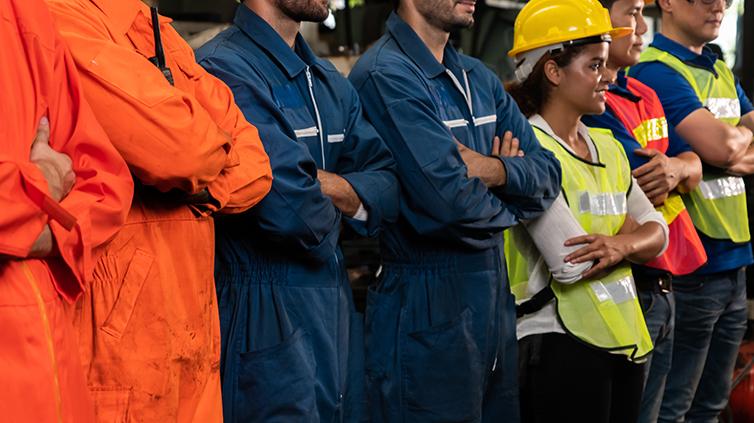Strengthening Government Labor Law Enforcement (SGLLE): Mexico and Honduras

Through its work with the U.S. Department of Labor, AIR is helping Mexico address its most pressing and immediate needs in the transition to the new labor justice system by supporting the government efforts to establish and operate new, more effective labor justice institutions. Similarly, in Honduras, we are supporting the labor inspectorate’s efforts to enforce Honduran labor laws more effectively, transparently, and accountably. Learn more about our work in Mexico and Honduras.
Mexico
The ILAB-funded SGLLE: Mexico project supports effective implementation of Mexico’s labor justice reforms. Under the SGLLE: Mexico project, AIR is working in close coordination with the new Mexican Federal Center for Conciliation and Labor Registration (FCCLR) and Mexico’s Secretary of Labor and Social Welfare (STPS) to help address some of Mexico’s most pressing and immediate needs in the transition to a new labor justice system. AIR is strengthening FCCLR and STPS capacity to apply the new union democracy procedures—including to combat unlawful practices undermining union democracy—and building union capacity to comply with them.
Project Highlights
Since the SGLLE: Mexico project launch in 2019, AIR has worked closely with the FCCLR and STPS to accomplish the following to advance labor justice reform implementation:
- Develop, provide training on, and support operation of the FCCLR electronic union registration platform to register mandatory union democracy-related materials, including new and revised collective bargaining agreements and union registrations, statutes, and union leadership.
- Digitize, catalog, standardize, and electronically transfer to the FCCLR over 128,000 historical union democracy-related files from 38 local Conciliation and Arbitration Boards.
- Develop a public union democracy database that organizes, stores, preserves, and makes available historical, revised, and new union democracy-related files for public consultation through user-friendly search mechanisms.
- Develop, provide training on, and support operation of the FCCLR electronic worker election verification platform.
- Provide FCCLR institution building and strengthening support and institutional professionalization and training.
Honduras
Since 2019, AIR has worked closely with the Government of Honduras to support more effective, efficient, transparent, and accountable labor law enforcement, in particular through improved Honduran Secretariat of Labor and Social Security (SETRASS) compliance with the strengthened Labor Inspection Law.
Under the SGLLE: Honduras project, AIR is working hand in hand with the SETRASS Technical Inspection Audit Unit (ATI) to improve the unit’s capacity to monitor and verify the quality of labor inspections and with the Attorney General of the Republic (PGR) to improve labor fine collection and tracking. Such close AIR coordination and collaboration with the ATI and PGR help ensure project activities meet ATI and PGR needs and that they will retain ownership after project conclusion.
Specifically, AIR is supporting the following activities:
- ATI strategic audit planning
- Development of internal ATI audit processes and procedures, including a formal complaints process for ATI receipt of labor inspection-related complaints
- ATI operational planning, including development and refinement of ATI’s organizational structure
- Development of technological tools to improve ATI case management
- Development of technological tools to facilitate information sharing between the SETRASS and PGR to improve labor fine collection and tracking

